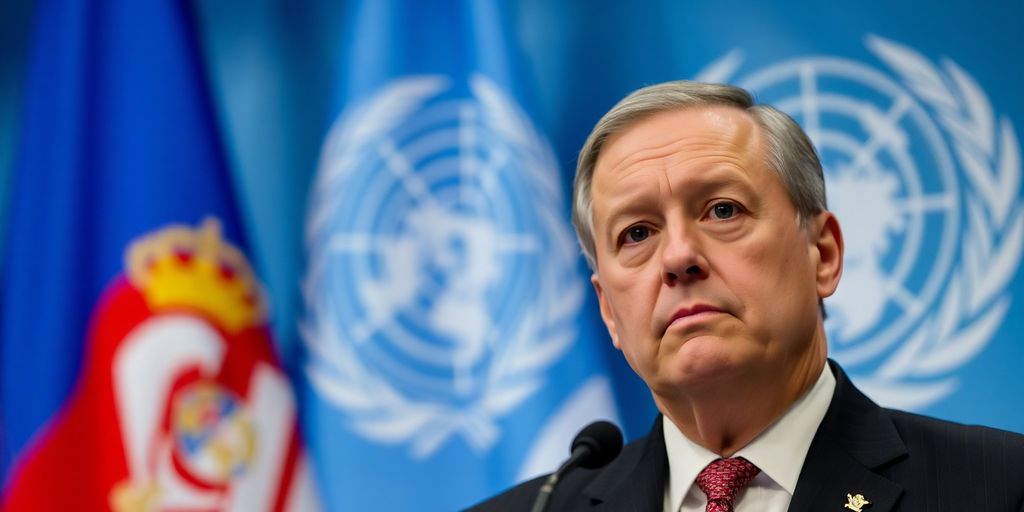Serbian President Aleksandar Vučić publicly apologized after Serbia mistakenly voted in favor of a UN resolution condemning Russia’s actions in Ukraine. The vote, which was intended to be an abstention, has raised questions about Serbia’s diplomatic stance and its relationship with both Russia and the West.
Key Takeaways
- Serbia accidentally supported a European-backed resolution at the UN General Assembly.
- President Vučić attributed the mistake to fatigue and a lack of thorough review.
- The resolution was adopted with 93 votes in favor, 18 against, and 65 abstentions.
- Vučić’s apology has been accepted by Moscow, but it highlights Serbia’s precarious position between Russia and the EU.
Background of the Vote
On February 24, 2025, the UN General Assembly adopted a resolution that explicitly condemned Russia’s invasion of Ukraine. This resolution was supported by 93 countries, including Serbia, which was expected to abstain from the vote. The Serbian government has historically maintained a neutral stance, balancing its ties with Russia and the European Union.
Vučić’s Admission of Error
In a televised address, President Vučić expressed regret over the voting error, stating, "I believe that Serbia made a mistake today. I apologize to the citizens of Serbia for this, and I take the blame for it." He explained that his exhaustion may have contributed to the oversight, as he had not thoroughly reviewed the voting materials.
Vučić emphasized that Serbia should have abstained from the European resolution, similar to its stance on a separate US-backed resolution that did not explicitly name Russia as the aggressor. He acknowledged the potential political fallout from this mistake, saying, "I will lose favor or political points in the EU because of this."
Reactions to the Apology
Following Vučić’s apology, Kremlin spokesperson Dmitry Peskov stated that Russia understood the vote as a "technical mistake" and appreciated the prompt response from the Serbian president. This incident has sparked discussions about Serbia’s foreign policy direction and its ability to navigate the complex geopolitical landscape.
Implications for Serbia’s Foreign Policy
Serbia’s accidental support for the resolution has raised concerns about its diplomatic neutrality. The country has faced increasing pressure to align with Western policies, especially in light of the ongoing conflict in Ukraine. Despite this, Serbia has refrained from imposing sanctions on Russia, maintaining its historical ties with Moscow.
The incident underscores the challenges Serbia faces in balancing its relationships with both Russia and the EU. As the country continues to pursue EU membership, it must navigate the expectations of its Western partners while managing its longstanding connections with Russia.
Conclusion
The diplomatic blunder at the UN highlights the delicate position Serbia occupies in international relations. President Vučić’s apology reflects the complexities of navigating foreign policy in a rapidly changing geopolitical environment. As Serbia moves forward, it will need to carefully consider its stance on global issues to maintain its sovereignty and diplomatic integrity.
Sources
- Serbian President: Serbia accidentally supported European resolution on Ukraine at the UN – Euromaidan Press, Euromaidan Press.
- Serbia ‘Accidentally’ Betrays Russia at UN Is Belgrade’s Neutrality Crumbling Under Western Pressure | National and World News | channel3000.com, Channel 3000.
- ‘I was tired’ — Serbia’s president apologizes for accidentally backing Ukraine’s UN resolution, The Kyiv Independent.
- Serbia "mistakenly" backs UN resolution on Ukraine, Moscow accepts Vučić’s apology – European Western Balkans, European Western Balkans.
- Serbian president walks back support of Ukraine in UN resolution – POLITICO, POLITICO.eu.






